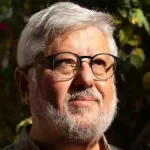As the Israel-Hamas war reached its 100th day, Israel’s prime minister Benjamin Netanyahu vowed: “No one will stop us – not the Hague, not the axis of evil, and no one else.”
Across Israel on Sunday, events were held to mark the grim milestone – and the three months that the remaining Israeli hostages (thought to be over 100) – have spent in Hamas captivity.
“After 100 days, how can one still find hope?” said former Hamas hostage Moran Stela Yanai in a speech to a large crowd in Tel Aviv’s Hostage Square, where many had gathered to campaign for the release of those still held in Gaza.
Speaking from the event, former Israeli hostage negotiator Gershon Baskin told The Independent:“The mood amongst the Israeli public is one of frustration. We have not left 7 October yet. We’re still stuck in a traumatised society. We’re still stuck in that position. And I don’t know anyone who’s optimistic about the fate of the hostages.”
In Gaza, the death toll has continued to rise – with 125 Palestinians killed and 265 injured in the past 24 hours, according to the Hamas-run health ministry. The same authority claims that more than 23,000 people have been killed and more than 60,000 injured in Gaza since the war started.
Around half of Gaza’s buildings have been damaged or destroyed. A quarter of its population faces “catastrophic hunger and starvation”. Less than half of its hospitals remain even partially functioning. And over two-thirds of school buildings have been damaged.
In the words of the UN’s humanitarian chief, Martin Griffiths, “Gaza has simply become uninhabitable.”
One hundred days in, the question of who will pay for the rebuilding of Gaza when the war finally comes to an end is one that continues to be asked in capitals across the Middle East.
Israel faces an ongoing case in the International Court of Justice (ICJ), put forward by South Africa, which accuses the Israeli government of “genocide” in the handling of its war in Gaza. In an ICJ hearing on Thursday, officials representing South Africa said that Israel’s “genocidal intent” was evident “from the way in which [its] military attack is being conducted”.
They said Israel had a plan to “destroy” Gaza that “has been nurtured at the highest level of state”.
Israel rejected the argument, claiming that South Africa had presented “a sweeping counterfactual description” of the Israel-Hamas conflict.
Israel declared war on Hamas in response to the militant group’s unprecedented cross-border attack on 7 October in which around 1,200 people were killed, mostly civilians, and 250 others were taken hostage. It was the deadliest attack in Israel’s history, and the deadliest for Jews since the Holocaust.
Now in its fourth month, the war is already Israel’s longest since the country’s establishment in 1948.
Tensions continued to simmer on the country’s northern border with Lebanon, as Israeli forces killed four gunmen who entered near the disputed Shebaa Farms area from Lebanon.
The Israeli military said that troops patrolling the area had “identified a terrorist cell who crossed from Lebanon into Israeli territory and fired at the forces … The soldiers engaged and responded with live fire, four terrorists were killed.” It is unclear which faction the gunmen belonged to.
Tensions with the Lebanese militant group Hezbollah have been heightened since the killing on 2 January of senior Hamas commander Saleh al-Arouri in a Beirut suburb by an airstrike that has been widely attributed to Israel. Hezbollah responded to the strike with a series of missile attacks on Israeli military bases.
Fears continue to grow over the war’s potential to spread further across the Middle East, as the Houthis vowed that they would not be deterred by joint US-UK airstrikes on their infrastructure.
The US-UK strikes were conducted in response to the Houthis’ continued targeting of ships in the Red Sea. Prior to November, around 12 per cent of global trade passed through the Red Sea, but since the attacks began, many ships have taken longer routes around Africa, which has put upward pressure on inflation.
“We’ve demonstrated that we’re prepared to follow words and warnings with action, and that is incredibly important,” said foreign secretary Lord Cameron. “It is hard to think of a time when there has been so much danger and insecurity and instability in the world,” he added. “The lights are absolutely flashing red, as it were, on the global dashboard.”
In a statement marking the 100th day of the conflict, Nabil Abu Rudeineh, a spokesperson for the Palestinian president Mahmoud Abbas, said: “The painful developments of the last 100 days have proven beyond doubt that the Palestinian issue and the Palestinian people cannot be ignored.”



